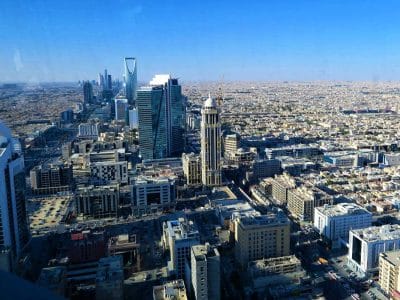Cutting the expatriate fat is a necessary pain for the Gulf countries. Foreigners are feeling the heat as Arab unrest brings fresh urgency to efforts in the UAE and Saudi Arabia to raise employment among nationals and insure political stability. That makes sense in the long-term. Handouts can’t last forever. But there’s no quick or pain-free fix to the labour market distortions.
Abu Dhabi, the UAE capital, is reacting to the regional unrest by firing expats at state-linked entities. Unemployment of Emiratis in the capital is increasing. Around 14 percent of nationals are currently out of work, according to one analyst. Across the UAE, unemployment is almost twice the level in Egypt. Nationals in Saudi make up just one in 10 of the private sector, according to Banque Saudi Fransi.
Quota systems already exist in both countries designed to help locals find work in the private sector. Saudi is now threatening to impose visa caps on firms breaking the rules. But the rules themselves are weak. Banks in the Kingdom must have nationals in 70 percent of jobs, but many get around the rules by hiring staff through agencies. And in the UAE, the Dubai International Financial Centre, a big centre for foreign professionals, is exempt.
Quotas are also lame without a more comprehensive plan. Saudi is undermining its own efforts by continuing to increase unemployment benefits and recently created 60,000 new government jobs, which typically pay more than the private sector. That adds to the public sector wage bill and fails to provide any incentive for nationals to enter the private sector on similar financial terms to foreigners. And while many nationals are well educated, there is room to improve standards.
A serious attempt to create a sustainable workforce will raise the costs of doing business and lower productivity. But implemented properly, the effort could bring long-term benefits. For a start, the flow of money out of the Gulf countries would slow. The World Bank estimates that $26bn, or 7 percent of GDP, left Saudi in 2009, the second largest of any nation. Countries would also no longer rely on cheap labour as a competitive edge.
Yet it would also shore up political stability. The Arab unrest is a stark reminder to Gulf countries that a happily employed national population is vital to the long-term survival of a regime. In the absence of a radical decision to hand out citizenship, that gives expats plenty of reasons to worry about job security.
(Una Galani is a Reuters Breakingviews columnist. The opinions expressed are her own.)








